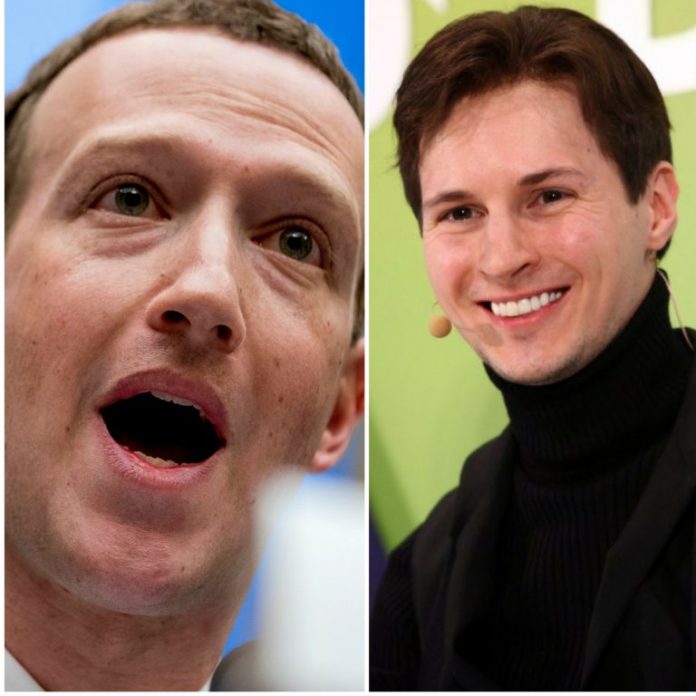
Something happened this week that rarely occurs, history offered up a side-by-side comparison with a control. Heads of respective social network and messaging platforms Facebook and Telegram were each brought before their home governments, the United States for Mark Zuckerberg, Russia for Pavel Durov. How the two men responded is telling, and should inform everyone concerned with privacy, especially cryptocurrency enthusiasts.
Also read: CBS’s NCIS Los Angeles Weaves Stolen Bitcoin Into Script, LL Cool J Is on the Case
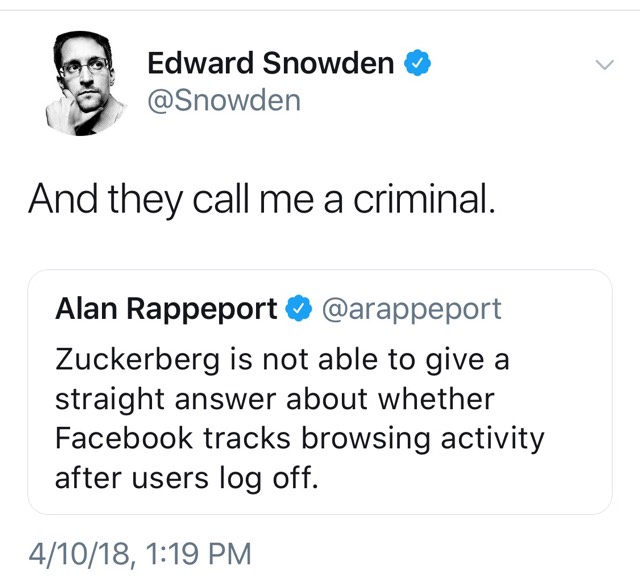
Facebook and Telegram Have Very Different Principles
Mike Butcher at Tech Crunch’s Disrupt back in 2015, put it to Pavel Durov of Telegram fame directly, “Does it concern you ISIS uses Telegram?” Mr. Durov looks away from his interviewer, Mr. Butcher, as if the answer is somewhere at the back of the room. “That’s a good question,” he says, considerately. Mr. Butcher asks pointedly, interrupting, “You sleep well at night knowing terrorists use your platform?” Mr. Durov again congratulates the line of questioning, and answers, “I think that privacy, ultimately, and our right for privacy, is more important than our fear of bad things happening like terrorism.”
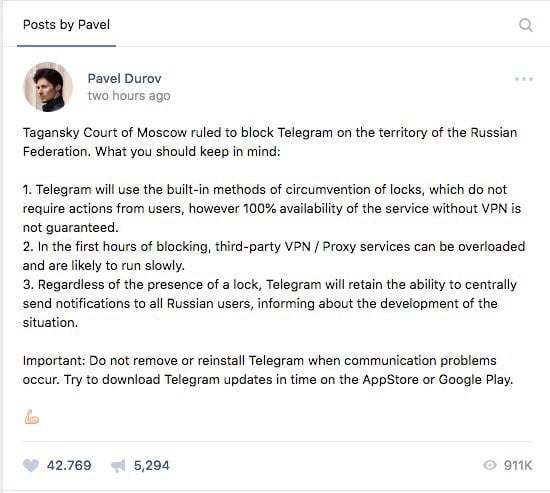
Such answers would be instant business suicide in the US, England, etc. Mr. Durov would be publicly attacked in the press, vilified by government minders. And yet here he is, in San Francisco, among the tech literati, talking the fundamental principle of cryptographic currency, privacy. Terrorism to the average person in the United States is a Pavlovian word, it rallies all manner of folks from varying backgrounds to support expansion of state power with few exceptions.
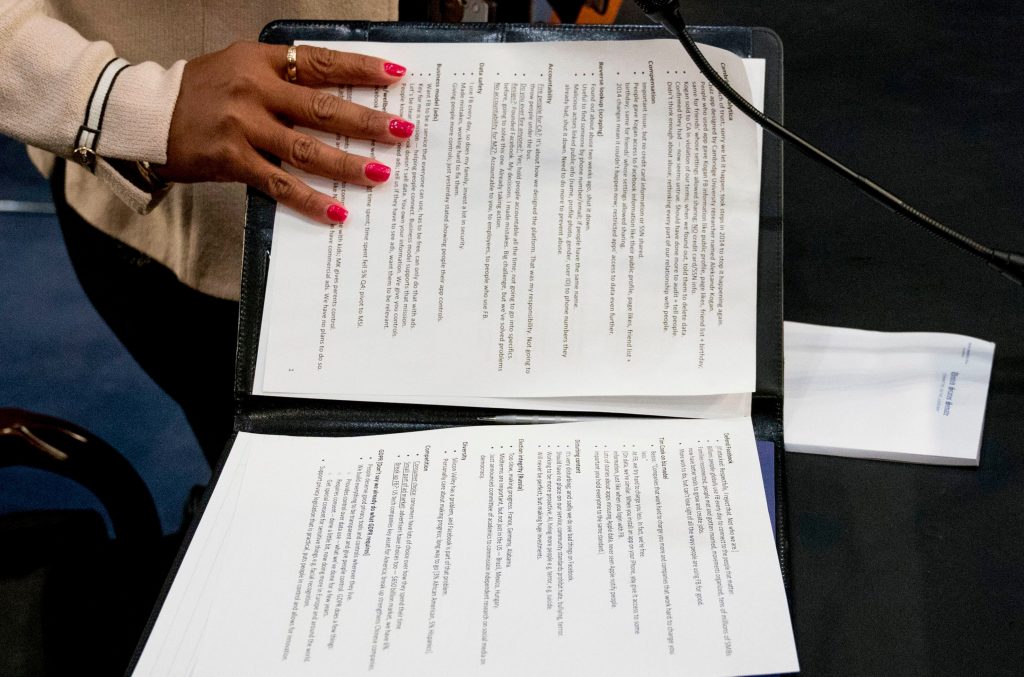
Contrast that answer, and the ethos behind it, with Mark Zuckerberg, founder of Facebook, and his testimony over two days this week to both houses of the US federal legislature. The nuanced evasions. The weird punts to his “team” and their “getting back” to lawmakers. The strange repetitive salutation, “Senator” and “Congressman” for every answer.
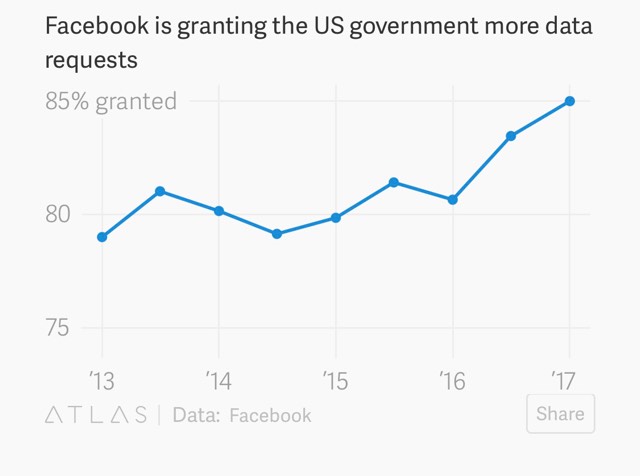
During his first day of testimony, Mr. Zuckerberg was asked by Senator John Thune of South Dakota of the Joint Commerce and Judiciary Committee about Facebook’s decade-long line of apologies and promises to do better on the issue of privacy. The caesar haircut, suited, and sitting on a four inch booster cushioned Mr. Zuckerberg when he again acknowledged “mistakes.” He then took the opportunity to wax nostalgic about his Harvard dorm room days, adding the company was in the process of an “overall, broader philosophical shift.”
The Shift to Good and Healthy
He continues, noting that Facebook’s main goal over its lifetime has been building tools to connect people, and this has come at the expense of the company’s “responsibility.” Facebook has chased the bucks, aiming for world dominance without really caring about how its platform changes people’s minds, while charging for every scammy ad. They’ve obviously not spent enough of their massive profits on hiring people to monitor and select what messages they put out.
It’s not enough to build tools, Mr. Zuckerberg insisted, “we need to make sure they’re used for good. We need to now take a more active role in policing the ecosystem […] making sure all the members of our community are using these tools in a way that’s going to be good and healthy.”
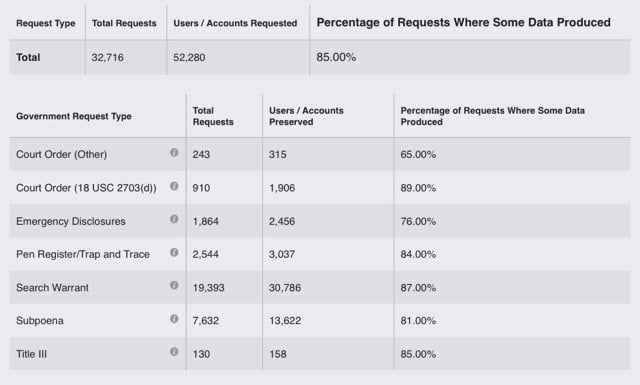
Mr. Zuckerberg and his assembled 27,000 or so employees are to review content, pushing users toward what they consider good and healthy. Good and healthy, it turns out, seems to correspond, increasingly, to governments’ whims. According to Facebook’s own metrics, it does indeed acquiesce to a staggering 85% of US law enforcement requests. In the United Kingdom, that number rises to 90% regularly.
Ironically, in Mr. Durov’s native Russia, Facebook has “restricted access to content reported by the Federal Service for Supervision of Communications, Information Technology, and Mass Media for allegedly violating local laws related to extremism, illegal gambling, and the promotion of self-harm and suicide,” a marked difference from Telegram’s defiance this week.
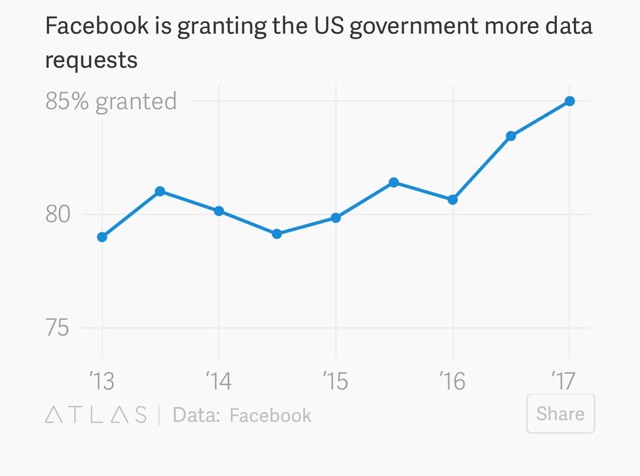
Orders of magnitude might point to a completely different business when attempting to compare Facebook to Telegram. And that’s probably a fair criticism. 200 million users (Telegram) versus 2 billion (Facebook) is a literal world of difference. But Telegram holds fast to parts of the cypherpunk ideal: censorship resistance, relative anonymity, a badass tech that can be accessed by anyone.
Using Facebook, even if readers are not dastardly criminals, carries a risk the hoi polloi should consider carefully. Most aren’t special enough to warrant activity on the level discussed here, of course, but that could very well change, and one needn’t be paranoid to understand the trending pipeline from Facebook to government law enforcement agencies the world over. The two are getting more difficult to distinguish.
Which messaging app do you prefer? Share your thoughts in the comments section below.
Images courtesy of Shutterstock, Andrew Harnik/AP/REX/Shutterstock.
Do you agree with us that Bitcoin is the best invention since sliced bread? Thought so. That’s why we are building this online universe revolving around anything and everything Bitcoin. We have a store. And a forum. And a casino, a pool and real-time price statistics.
The post Greedy Facebook Versus Ideological Telegram: Why Principles Matter appeared first on Bitcoin News.

Bitcoin.com is author of this content, TheBitcoinNews.com is is not responsible for the content of external sites.
Our Social Networks: Facebook Instagram Pinterest Reddit Telegram Twitter Youtube










